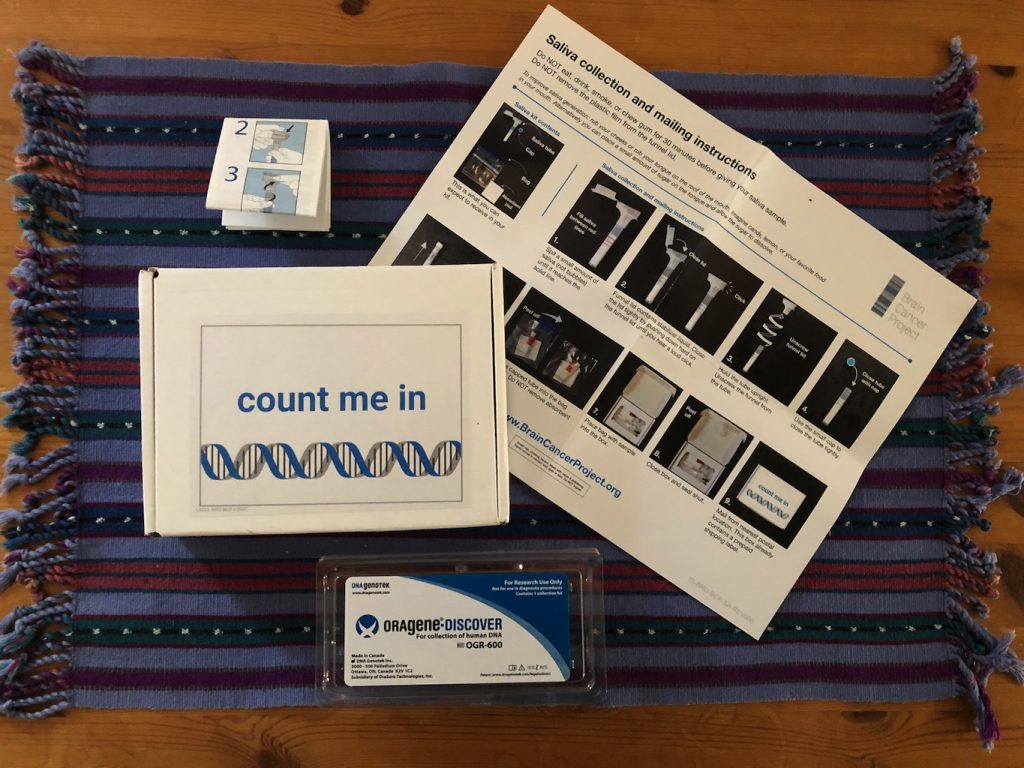My job with IBM has been very rewarding and intellectually interesting. I enjoy working in the world of Oncology and Genomics. However, most of my efforts/ time have been mostly focused on cancers that have high incidence rates, not the kind of cancer Susie has. I was thrilled early on when Watson for Genomics was used at the New York Genome Center against Glioblastoma Multiforme (GBM), which is Susie’s type of brain cancer. Furthermore, I was quite proud when family members asked about its use at the US Department of Veterans Affairs (VA), which is part of the National Cancer Moonshot Initiative.
These instances and more are good reasons why I enjoy being an IBMer. But, I would often lie awake at night wondering what else I can do. My thoughts would ponder drug discovery, scientific research and other dimensions in life sciences. But no opportunities or pearls of wisdom as related to brain cancer came my way.
This changed in Summer of 2018.
Susie and I were kindly introduced by brain cancer advocates Charlie Blotner and Liz Salmi to Corrie Painter about a project initiative for Glioblastoma Multiforme (GBM) at the Broad Institute and Harvard. Corrie explained some of the past projects, like for Metastatic Breast Cancer, Prostate and Angiosarcoma, and the unique goals and commitments for this GBM initiative. This initiative sounded just up my alley, as the data planning to be obtained, organized and made available might be used to answer questions I have been thinking about since Susie’s recurrence in 2013.
So we joined the Brain Cancer Project, which was expanded beyond GBM to include other primary brain cancers (such as Astrocytoma and Oligodendroglioma).
Rewind to 2013
To give some background, when Susie’s brain cancer recurred from a Grade III Anaplastic Oligoastrocytoma to a Grade IV Glioblastoma Multiforme, we entered a world that was now filled with new terms and concepts. Terms like biomarker, oncogene, mutation and variant were all new to us. The concept of clinical trials using targeted therapy and immunotherapy were also new.
We were offered during Susie’s treatment, as part of a clinical study, to have her recurrent tumor genetically tested. I recall asking if the study was going to test Susie’s original tumor and the DNA associated with her blood, tumor vs. germline was not part of the study’s scope. While we were happy to participate, the study seemed narrow, and the data might not be easily reused/ cross-referencable. After receiving the molecular testing pathology report, some questions we wish we could explore included:
- How do secondary GBMs change at the molecular level when they recur?
- Are the identified mutations only in the tumor? could they be inheritable?
- Why do some patients respond better than others?
- Are there any genes that might identify if a patient has a high susceptibility of experiencing adverse events, such as severe thrombocytopenia or neutropenia?
- Are there any patterns in care that make a difference in patient outcome?
Fast forward to 2019
I strongly feel the Brain Cancer Project, which we worked on with lots of other folks and was recently launched by Count Me In, hopefully can be used to answer these kinds of questions (and maybe much more). This initiative looks beyond targeted testing of specific oncogenes.
- With patient authorization, the project will conduct whole exome sequencing of not only the tumor but also blood/ saliva samples. So questions about gene driver, passenger and inheritability should be more discoverable.
- The project will also collect patient-reported data via surveys and patient medical records, assuming authorization is obtained, so treatment, genomic and clinical data can be analyzed together. Maybe susceptibility or response likelihood can also be better gauged.
- And more importantly, this can all be reapplied if recurrence happens.
The big clincher that won me over is “all the data will be freely available to the global biomedical community.”
I’m happy to not only to have volunteered and contributed in getting this initiative off the ground, but also proud that Susie has been a willing contributor to its research. She submitted her DNA and authorization forms just before we went on vacation to Israel and the UK.
